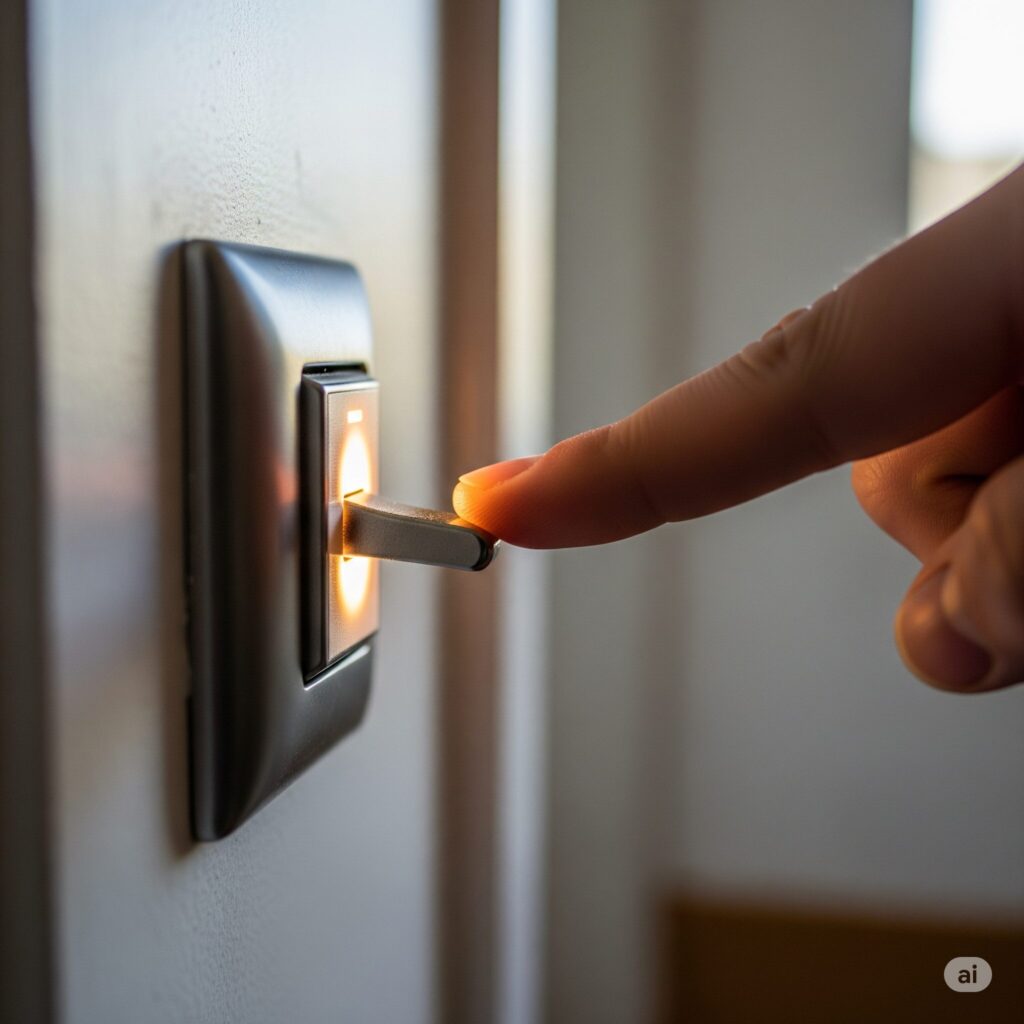受動態について知ろう
受動態は、英語の文法でとっても重要な表現方法です。能動態が「〜が〜する」と動作を行う側を主語にするのに対し、受動態は**「〜が〜される」**と、動作を受ける側を主語にする形です。
受動態の基本形
受動態の形はいつも同じパターンです。
be動詞 + 過去分詞 (Vp.p.)
- be動詞は、文の主語と時制に合わせて形が変わります (例:
am,is,are,was,were,be,been,beingなど)。 - 過去分詞は、動詞の3つ目の形で、規則動詞なら
-edをつけ、不規則動詞は個別の形になります (例:play→played,eat→eaten)。
例:
- 能動態: I eat an apple. (私がリンゴを食べる。)
- 受動態: An apple is eaten by me. (リンゴが私に食べられる。)
なぜ受動態を使うの?
受動態を使うのには、いくつか理由があります。
- 誰がやったか分からない、または重要ではない時 誰がその動作をしたのか不明な場合や、伝える必要がない場合に受動態を使います。
- The window was broken last night. (窓が昨夜割られました。)
- (誰が割ったのかはっきりさせたくない、または重要ではない。)
- The window was broken last night. (窓が昨夜割られました。)
- 動作を受けるものに焦点を当てたい時 文の中で、動作の受け手(対象)を主役にしたい場合に受動態を使います。
- This book was written by a famous author. (この本は有名な作家によって書かれました。)
- (「本」に焦点を当てていて、誰が書いたかは補足情報。)
- This book was written by a famous author. (この本は有名な作家によって書かれました。)
- 客観的でフォーマルな印象を与えたい時 ニュース記事、科学論文、公式な発表など、個人的な感情を避け、客観的な事実を述べたいときに使われます。
- New regulations will be implemented next month. (新しい規制は来月施行されます。)
- (特定の誰かが施行するというよりも、規制が施行されるという事実を強調。)
- New regulations will be implemented next month. (新しい規制は来月施行されます。)
受動態の作り方
能動態の文を受動態にする基本的な手順は次の通りです。
能動態の文: 主語 + 動詞 + 目的語
- 能動態の「目的語」を受動態の「主語」にします。
- 動詞を「be動詞 + 過去分詞」の形に変えます。
- be動詞は、新しい主語と元の動詞の時制に合わせます。
- 能動態の「主語」を「by + 動作主」として文の最後に加えます。(省略されることも多い)
- 動作主が不明、重要ではない、または「人々 (people)」「誰か (someone)」といった一般的な人である場合は、
by + 動作主は省略されることがほとんどです。
- 動作主が不明、重要ではない、または「人々 (people)」「誰か (someone)」といった一般的な人である場合は、
例:
- 能動態: My mother made this cake. (母がこのケーキを作った。)
- 受動態: This cake was made by my mother. (このケーキは母によって作られた。)
様々な時制と助動詞との組み合わせ
受動態は、他の時制や助動詞と組み合わせて使うこともできます。
- 現在進行形: be動詞 + being + 過去分詞
- The house is being built. (その家は建てられているところだ。)
- 現在完了形: have/has + been + 過去分詞
- The letter has been sent. (その手紙は送られた。)
- 助動詞: 助動詞 + be + 過去分詞
- This problem can be solved. (この問題は解決できる。)
句動詞について知ろう
句動詞 (Phrasal Verbs) は、英語の動詞と、前置詞 (preposition) や副詞 (adverb) が組み合わさって、新しい一つの意味を持つ動詞句のことです。ネイティブスピーカーの会話やカジュアルな文章で頻繁に使われるため、理解しておくと英語の自然な表現力が格段に上がります。

句動詞の基本構造
句動詞は主に以下の3つの形があります。
- 動詞 + 副詞
- 例:
turn on(〜をつける),give up(〜をあきらめる)
- 例:
- 動詞 + 前置詞
- 例:
look for(〜を探す),listen to(〜を聞く)
- 例:
- 動詞 + 副詞 + 前置詞
- 例:
look forward to(〜を楽しみにする),get along with(〜とうまくやっていく)
- 例:
句動詞の重要な特徴
- 意味が予測しにくい 句動詞の大きな特徴は、個々の単語の意味からは全体の意味を予測しにくい点です。
give(与える) +up(上に) →give up(あきらめる)look(見る) +for(のために) →look for(探す)
- 他動詞と自動詞がある 句動詞にも、目的語を取る他動詞と、目的語を取らない自動詞があります。
- 自動詞の句動詞:
break down(故障する): The car broke down. (車が故障した。)grow up(成長する): He grew up in a small town. (彼は小さな町で育った。)
- 他動詞の句動詞:
turn off(〜を消す): Please turn off the light. (電気を消してください。)put on(〜を身につける): She put on her coat. (彼女はコートを着た。)
- 自動詞の句動詞:
- 目的語の位置(分離型 vs. 非分離型) 他動詞の句動詞の中には、目的語の位置によって「分離できるもの」と「分離できないもの」があります。
- 分離できる句動詞 (動詞 + 副詞): 目的語が名詞の場合、動詞と副詞の間にも、副詞の後にも置けます。
turn onthe TV /turnthe TVon目的語が代名詞の場合、必ず動詞と副詞の間に置きます。turn it on(O),turn on it(X)pick him up(O),pick up him(X)
- 分離できない句動詞 (動詞 + 前置詞、または動詞 + 副詞 + 前置詞): 目的語は常に前置詞の後ろに置かれます。
look formy keys (O),lookmy keysfor(X)listen tomusic (O),listenmusicto(X)get along withhim (O),get alonghimwith(X)
- 分離できる句動詞 (動詞 + 副詞): 目的語が名詞の場合、動詞と副詞の間にも、副詞の後にも置けます。
- 受動態の扱い 句動詞が他動詞の場合、受動態にすることができます。このとき、句動詞は一つのまとまりとして扱われるため、前置詞や副詞は動詞の直後に残ります。
- 能動態: They looked after the child. (彼らはその子の世話をした。)
- 受動態: The child was looked after by them. (その子は彼らによって世話された。)
- 能動態: People talk about that problem. (人々はその問題について話す。)
- 受動態: That problem is talked about by people. (その問題は人々によって話される。)
よく使われる句動詞の例
call off: (〜を)中止するcome up with: (〜を)思いつくfind out: (〜を)見つけ出す、(〜について)知るget over: (〜を)乗り越える、(〜から)回復するgo through: (〜を)経験する、(〜を)目を通すput off: (〜を)延期するtake off: 離陸する、(服などを)脱ぐturn down: (音量を)下げる、(提案を)断る
句動詞は慣れるまで時間がかかりますが、一つずつ意味と使い方を覚えていくことが重要です。英語をより自然に使いこなすために、ぜひ積極的に学習してみてください。
受動態の句動詞について知ろう
受動態の句動詞は、少し複雑に感じるかもしれませんが、ルールを理解すれば難しくありません。基本的には、句動詞全体を一つの他動詞として扱い、その後に続く目的語を受動態の主語にするという考え方です。

受動態の句動詞の基本構造
句動詞が他動詞の場合、受動態にすることができます。このとき、句動詞を構成する動詞と前置詞/副詞は、切り離さずに一つのまとまりとして扱われます。
能動態: 主語 + 句動詞 (V + prep/adv) + 目的語 受動態: 目的語 + be動詞 + 句動詞の過去分詞形 (Vp.p. + prep/adv) + (by 動作主)
例:
- 能動態: Everyone laughed atthe comedian. (みんながそのコメディアンを笑った。)
laughed atが一つの句動詞として「〜を笑う」という意味を持ちます。- 受動態: The comedian was laughed at by everyone. (そのコメディアンはみんなに笑われた。)
- 能動態: They looked afterthe child. (彼らはその子の世話をした。)
looked afterが一つの句動詞として「〜の世話をする」という意味を持ちます。- 受動態: The child was looked after by them. (その子は彼らによって世話された。)
句動詞の受動態のポイント
- 句動詞全体が動詞の役割を果たす: 句動詞は、たとえ2つや3つの単語からなっていても、意味の上では一つの動詞として機能します。そのため、受動態にする際も、そのまとまりを崩しません。特に、動詞の直後に前置詞が続くタイプ(
talk about,look forなど)で顕著です。- 能動態: People talk about that problem. (人々はその問題について話す。)
- 受動態: That problem is talked about. (その問題は話されている。)
talked aboutのaboutを省略しないことが重要です。
- 目的語の位置に注意: 能動態で句動詞の後に来る目的語が、受動態では主語になります。
- 能動態: Someone put off the meeting. (誰かが会議を延期した。)
- 受動態: The meeting was put off. (会議は延期された。)
- 分離可能な句動詞の場合:
turn on(〜をつける),pick up(〜を拾う) など、動詞と副詞の間に目的語を挟むことができる「分離可能な句動詞」の場合でも、受動態では常に「動詞 + 副詞」が一体となった形で使われます。- 能動態: He turned on the light. (彼が電気をつけた。)
- または He turned the light on.
- 受動態: The light was turned on by him. (電気が彼によってつけられた。)
- 能動態: He turned on the light. (彼が電気をつけた。)
例外的な注意点
- 自動詞の句動詞は受動態にならない: もともと目的語を取らない自動詞の句動詞(例:
break down「故障する」、go out「外出する」)は、受動態にすることはできません。- The car broke down. (車が故障した。) →
The car was broken down.(X)
- The car broke down. (車が故障した。) →
受動態の句動詞の重要性
句動詞の受動態を理解することは、特にニュース記事、学術論文、公的な文書などで見られる複雑な受動態の文を正確に読み解くために非常に重要です。また、より自然でこなれた英語表現を身につける上でも役立ちます。句動詞自体を覚えるのに加えて、それが受動態になった時にどういう形になるのかも意識して学習すると良いでしょう。
さらに深く受動態の句動詞について知ろう
句動詞の受動態のポイントは、句動詞としてまとまって他動詞の働きをするので、「1つのまとまった動詞」として扱うことにある。
「他動詞+副詞」を受動態で表現する場合
(能動態)The CEO put off the meeting.
(受動態)The meeting was put off by the CEO.
(この会議は、CEOによって延期された。)
(能動態)The students picked up the flowers.
(受動態)The flowers were picked up by the students.
(その花は、生徒たちによって拾い上げられた。)
「自動詞+前置詞」を受動態で表現する場合
(能動態)The man looked for the key.
(受動態)The key was looked for by the man.
(その鍵は、男性によって探されていた。)
(能動態)The CEO run up the price.
(受動態)The price were run up by the CEO.
(その値段は、CEOによって急騰した。)
「名詞を含んだ句動詞」の受動態の表現について
句動詞の中に名詞を含んだ場合でも「1つのまとまった動詞」として扱うことにある。
(能動態)The teacher made fun of the boy.
(受動態)The boy was made fun of by the teacher.
(能動態)The man make a fool of the dog.
(受動態)The dog was made a fool of by the man.
(その犬は、その男性によってばかにされていた。)
「catch sight of~(目に入る)」「lose sight of~(見失う)」は①に当てはまる。
(能動態)You should keeps an eye on the baby.
(受動態)An eye should be kept the baby
(赤ん坊は見守られるべきである。)
(能動態)We take pride in the job.
(受動態)Pride is took in the job.
(その仕事は、自慢される。)
「make allowance for~(考慮にいれる)」などは②に当てはまる
(能動態)We should take care of parents.
(受動態①)Parents shoul be took care of.
(受動態②)Care should be took of parents.
(両親の世話をするべきである。)
「take advantage of ~(利用する)」「pay attention to~ (注意を払う)」「take notice of~ (注意する)」などは③に当てはまる。
③の場合は、「much」や「great」などの副詞をつけて表現することが多い。
「命令文の受動態について(まとめ)」
let + 目的語 + be + 過去分詞 )を使った表現
命令文の受動態を口語として使う場面は少なく多くの場面においては、文語として表現される。
(能動態)Stop the car.
(受動態)Let the car be stopped.
(車を止めなさい。)
“Let the car be stopped,”said someone.(「車をとめよ」と誰かが言った。)のようにダブルクォーテーション(”)や「say (said)」を用いて表現することもある。
命令文の受動態について(まとめ) | てばっち教育研究所 (tebatch.com): 【受動態:文法】受動態の基本を確認し、句動詞の受動態について知ろう!(練習問題付き)「疑問文の受動態について(特殊な疑問文について)」
一般的な疑問文について
一般的な疑問文は「be動詞」か「助動詞」が文頭におかれる。
(肯定文)The book was read by Tom.
(疑問文)Was the book read by Tom?
(答え方)Yes, it was./ No, it wasn’t.
(肯定文)This window can be opened by students.
(疑問文)Can this window be opened by students?
(答え方)Yes, it can. / No, it cannot (can’t).
※主語とbe動詞を入れ替えて肯定文から疑問文にする。
特殊な疑問文について
(能動態)Who broke the window?
①By whom was the window broken?
②Whom was the window broken by?
③Who was the window broken by?
(誰がこの窓を壊したのだろうか。)
受動態の句動詞 練習問題

英文和訳 (English to Japanese)
指示: 以下の英文を日本語に訳しなさい。
- The old photo was looked at by everyone.
- This project was carried out by a small team.
- The issue has been talked about for weeks.
- All the details were gone over carefully.
- The meeting was put off until next week.
- He was often made fun of by his classmates.
- The children are being looked after by their aunt.
- The new policy will be brought in next month.
- Her proposal was warmly taken to by the committee.
- The patient was well taken care of by the nurses.
和文英訳 (Japanese to English)
指示: 以下の日本語を受動態の句動詞を使って英文に訳しなさい。
- その計画はあきらめられた。
- そのアイデアはすぐに思いつかれた。
- 彼はよく同級生から笑われた。
- そのニュースはまだ報じられていない。
- その事故は調査された。
- 子供たちは今、見守られているところだ。
- その提案は受け入れられた。
- 彼らはその会議から置き去りにされた。
- そのルールは守られている。
- 彼女の意見は耳を傾けられた。
解答例
英文和訳の解答例
- その古い写真はみんなに見られた。
- このプロジェクトは小さなチームによって実行された。
- その問題は何週間も話し合われている。
- 全ての詳細は慎重に確認された。
- 会議は来週まで延期された。
- 彼はよくクラスメートにからかわれた。
- 子供たちは叔母によって世話されているところだ。
- 新しい方針は来月導入されるだろう。
- 彼女の提案は委員会に快く受け入れられた。
- 患者は看護師たちによく世話された。
和文英訳の解答例
- The plan was given up.
- The idea was soon come up with.
- He was often laughed at by his classmates.
- The news has not been reported on yet.
- The accident was looked into.
- The children are being watched over now.
- The proposal was agreed to.
- They were left out of the meeting.
- The rules are being kept to.
- Her opinion was listened to.
てばっち英語研究所|おすすめ学習ツール
【書籍】
今日の解説で「なるほど!」と思った方には、ぜひ手に取ってほしい一冊があります。
それが、『一億人の英文法』**です。 専門用語の暗記ではなく、「なぜネイティブはこう言うのか?」というイメージを徹底的に解説してくれます。
私はこの本に出会って、英語の景色がガラリと変わりました。 解説を読んで「もっと深く知りたい」と感じたなら、間違いなくあなたのバイブルになります。
【オンライン英会話】
知識として理解できたら、次は『自分の言葉』として使ってみることが上達の近道です。 Camblyなら、予約なしですぐにネイティブ講師と繋がれるので、今日学んだ知識をさっそく会話で試してみませんか?
【コーチング】
文法を理解しても、それを使いこなすための『圧倒的な練習量』を一人でこなすのは至難の業です。 もし、あなたが『今度こそ、絶対に挫折したくない』と本気で思っているなら、ライザップイングリッシュの門を叩いてみてください。専属トレーナーが、あなたの学習を1分単位で管理し、短期間で劇的な変化をもたらします。


![[商品価格に関しましては、リンクが作成された時点と現時点で情報が変更されている場合がございます。] [商品価格に関しましては、リンクが作成された時点と現時点で情報が変更されている場合がございます。]](https://hbb.afl.rakuten.co.jp/hgb/508699a7.eb9372ff.508699a8.27a980f1/?me_id=1213310&item_id=15566187&pc=https%3A%2F%2Fthumbnail.image.rakuten.co.jp%2F%400_mall%2Fbook%2Fcabinet%2F5278%2F9784890855278_1_4.jpg%3F_ex%3D240x240&s=240x240&t=picttext)



